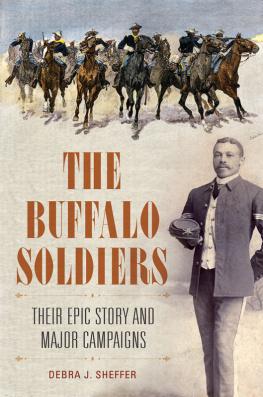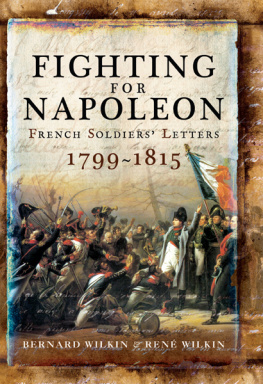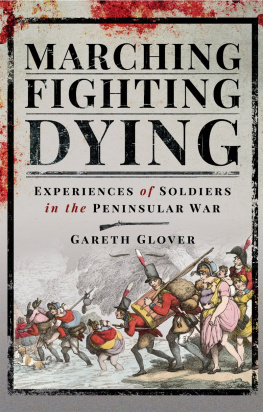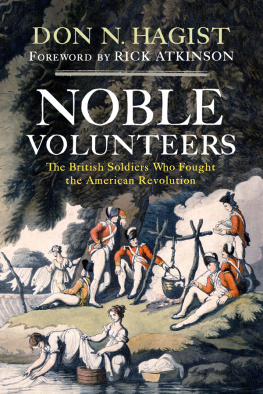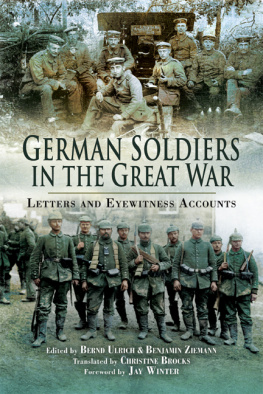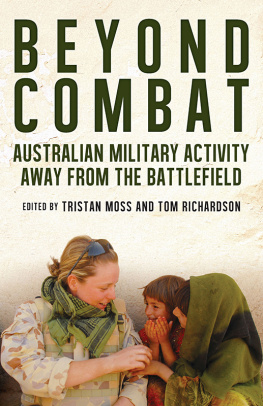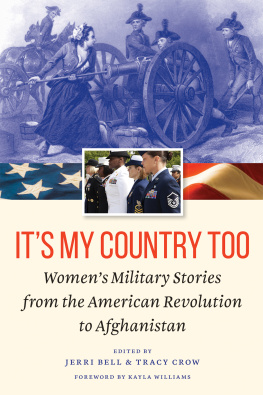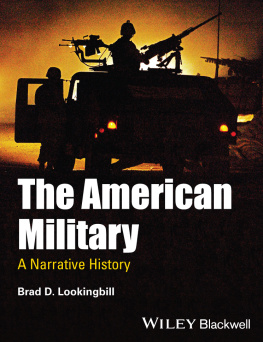A Peoples History of the U.S. Military
Also by Michael A. Bellesiles
1877: Americas Year of Living Violently
Arming America: The Origins of a National Gun Culture
Documenting American Violence: A Sourcebook
(co-edited with Christopher Waldrep)
Ethan Allen and His Kin: Correspondence, 17721819
(co-edited with John Duffy)
Lethal Imagination: Violence and Brutality in American History (editor)
Revolutionary Outlaws: Ethan Allen and the
Struggle for Independence on the Early American Frontier
A Survival Guide for Teaching
Weighed in an Even Balance
A Peoples History of
the U.S. Military
Ordinary Soldiers Reflect on Their Experience of
War, from the American Revolution to Afghanistan
MICHAEL A. BELLESILES

2012 by Michael A. Bellesiles
All rights reserved.
No part of this book may be reproduced, in any form, without written permission from the publisher.
Requests for permission to reproduce selections from this book should be mailed to:
Permissions Department, The New Press, 38 Greene Street, New York, NY 10013.
Published in the United States by The New Press, New York, 2012
Distributed by Perseus Distribution
LIBRARY OF CONGRESS CATALOGING-IN-PUBLICATION DATA
Bellesiles, Michael A.
A peoples history of the U.S. military : ordinary soldiers reflect on their experience of war, from the American Revolution to Afghanistan / Michael A. Bellesiles.
p. cm.
Includes bibliographical references and index.
ISBN 978-1-59558-713-8
1. United StatesHistory, Military. 2. SoldiersUnited StatesDiaries. 3. SoldiersUnited StatesAnecdotes. 4. Soldiers writings, American. 5. United StatesArmed ForcesDiaries. 6. United StatesArmed ForcesBiographyAnecdotes. I. Title. II. Title: Ordinary soldiers reflect on their experience of war, from the American Revolution to Afghanistan.
E181.B535 2012
355.00973dc23
2012012226
Now in its twentieth year, The New Press publishes books that promote and enrich public discussion and understanding of the issues vital to our democracy and to a more equitable world. These books are made possible by the enthusiasm of our readers; the support of a committed group of donors, large and small; the collaboration of our many partners in the independent media and the not-for-profit sector; booksellers, who often hand-sell New Press books; librarians; and above all by our authors.
www.thenewpress.com
Composition by Westchester Book Composition
This book was set in Adobe Garamond
2 4 6 8 10 9 7 5 3 1
For Matt and Mark,
brothers in word and deed
Contents
A great deal of Americas history gets thrown in the trash. It is just so much clutter that gets in our way and has no apparent meaning. Old buildings get torn down, historical sites are paved over for parking lots, and personal documents from an earlier age are discarded. Ours is a society oriented toward the present, with little patience for the past.
As a teenager I haunted junk shops in Los Angeles, mostly looking for cheap used books, since that was about all I could afford. Back in the 1960s these shops were full of souvenirs brought back from World War II and the Korean War, with display cases filled with knives, uniform patches, and medals. In my childish veneration of heroism, I could not understand getting rid of medals. But one day the nature of my society became clearer to me. I was in one of my favorite junk shops and noticed a beautiful leather-bound photo album. Cautiously, I began to leaf through the yellowing pages. Early in the album, a young soldier stands to clumsy attention in his doughboy uniform. Later on, the same young man leans proudly against a car, then is part of a couple holding a baby; there follows the usual snapshots of people laughing on a picnic, formal portraits, birthday celebrations, a few soldiers in World War II uniforms, and then an abrupt end, followed by blank pages.
The shops owner, a friendly woman who was used to my interest in old things, told me that someone would probably buy the album for their own use. What will they do with the photos? I asked.
Oh, theyll get thrown away.
Americans are notoriously uninterested in their nations history, with surveys consistently discovering a vast void of historical knowledge even among college graduates. This avoidance of the past generally extends beyond our national story to include personal history and even memory. I am often astounded to find that people my age have somehow completely forgotten key events that occurred during their lifetimes, including entire wars. But then, growing up, I was surrounded by war. There were U.S. Navy vessels in the harbor, a visible military-industrial complex that employed the parents of many classmates, and veterans everywhere. My father served in World War II, my uncle Charles took part in the Normandy invasion and received a Silver Star for gallantry, my uncle Frank piloted a bomber over Germany, and our neighbor Dale Lundbergh flew fighters in the Pacific. Yet nobody wanted to talk about the war. My mother kept an album of clippings during World War II, but she didnt want it in the house and gave it to her brother; I never learned why.
History opened up for me one day at school when I returned to my math class because I had left behind a book I was reading. In this large urban high school of four thousand, I was just another dumb kid quietly doing my work, until that afternoon. When I saw that my book was not where I had left it, but sitting on the teachers desk, I immediately assumed I was going to get in trouble again for reading in class. Instead my math teacher picked up the book and asked why I was reading a memoir, written by a German soldier, about the first months of World War I. That began several years of conversations with Harvey Green, one of the men who had planned the escape from Stalag 17, and started me on my circuitous path to a PhD in history.
I soon learned that the Los Angeles school system was full of veterans, many of them wanting to tell their stories but doubting that anyone wanted to hear them. I listened as they talked about the segregated military, the liberation of concentration camps, the loss of good friends in battle, struggling to survive in a prison camp, first hearing of the atomic bomb, coming homethese latter stories usually ending with a quick intake of breath and a change of subject. I may have been the only student to know that my history teacher had been wounded in Italy, or that my physics teacher had splashed ashore at Okinawa, and I am certain that none of my classmates could imagine our diminutive female English teacher working in an airplane factory during the war. Paul Liley, my photography teacher who became a lifelong friend, had what sounded like a fairly safe job, photographing sites for bombing runs against Japanese targets, until he flew over a city they had just hit and realized that those were the remains of houses down there. He started drinking heavily after that run. Thanks to Green, I heard all their stories, listening closely, and saddened when they said that I showed more interest than their own children. And then friends of mine started going to Vietnam; a few did not return.
It makes a sort of sense that people did not want to hear these veterans talk of their experiences: they did not want to acknowledge our military heritage or their shared responsibility for these wars. One of my teachers had served in Korea, a war largely unknown to me. He told me that the strangest thing was coming home to a country that seemed to have no conception that there was a war on. Years later other Korean veterans would tell me much the same story, of returning to their homes in Ohio or New York and encountering a willful ignorance of Americas involvement in an Asian war. The distance between returning soldiers and the civilian population is often enormous, reinforcing the sense of alienation many veterans feel from their own country. In my years of volunteer work with vets, the expression I believe I have most often heard is no one cares.
Next page

